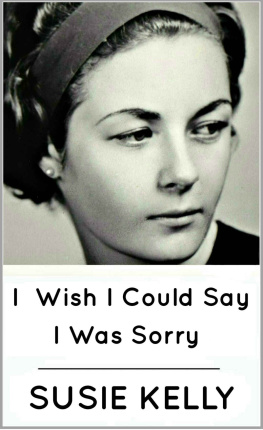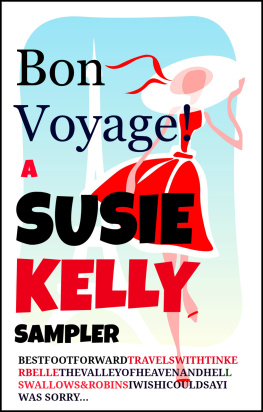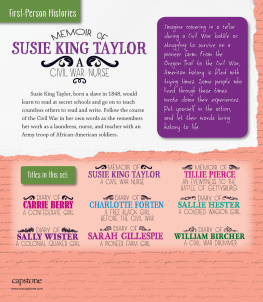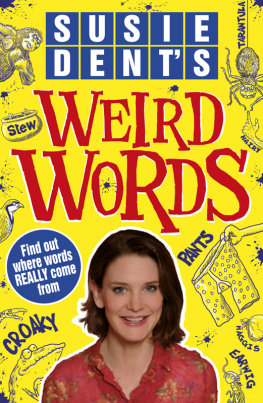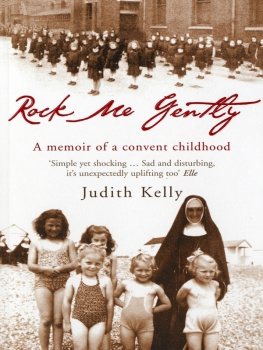Susie Kelly - I Wish I Could Say I Was Sorry: Stunning memoir of an English girls 1950s childhood in Kenya
Here you can read online Susie Kelly - I Wish I Could Say I Was Sorry: Stunning memoir of an English girls 1950s childhood in Kenya full text of the book (entire story) in english for free. Download pdf and epub, get meaning, cover and reviews about this ebook. year: 2014, publisher: Blackbird Digital Books, genre: Non-fiction. Description of the work, (preface) as well as reviews are available. Best literature library LitArk.com created for fans of good reading and offers a wide selection of genres:
Romance novel
Science fiction
Adventure
Detective
Science
History
Home and family
Prose
Art
Politics
Computer
Non-fiction
Religion
Business
Children
Humor
Choose a favorite category and find really read worthwhile books. Enjoy immersion in the world of imagination, feel the emotions of the characters or learn something new for yourself, make an fascinating discovery.
- Book:I Wish I Could Say I Was Sorry: Stunning memoir of an English girls 1950s childhood in Kenya
- Author:
- Publisher:Blackbird Digital Books
- Genre:
- Year:2014
- Rating:3 / 5
- Favourites:Add to favourites
- Your mark:
- 60
- 1
- 2
- 3
- 4
- 5
I Wish I Could Say I Was Sorry: Stunning memoir of an English girls 1950s childhood in Kenya: summary, description and annotation
We offer to read an annotation, description, summary or preface (depends on what the author of the book "I Wish I Could Say I Was Sorry: Stunning memoir of an English girls 1950s childhood in Kenya" wrote himself). If you haven't found the necessary information about the book — write in the comments, we will try to find it.
Susie Kelly: author's other books
Who wrote I Wish I Could Say I Was Sorry: Stunning memoir of an English girls 1950s childhood in Kenya? Find out the surname, the name of the author of the book and a list of all author's works by series.
I Wish I Could Say I Was Sorry: Stunning memoir of an English girls 1950s childhood in Kenya — read online for free the complete book (whole text) full work
Below is the text of the book, divided by pages. System saving the place of the last page read, allows you to conveniently read the book "I Wish I Could Say I Was Sorry: Stunning memoir of an English girls 1950s childhood in Kenya" online for free, without having to search again every time where you left off. Put a bookmark, and you can go to the page where you finished reading at any time.
Font size:
Interval:
Bookmark:
I Wish I Could Say I Was Sorry
Stunning memoir of an English girl's 1950s childhood in Kenya
SUSIE KELLY

Copyright 2013 Susie Kelly
All rights reserved
The moral right of the author has been asserted. The author has changed the names of many family members.
No part of this book may be reproduced, or stored in a retrieval system, or transmitted in any form or by any means, electronic, mechanical, photocopying, recording, or otherwise, without express written permission of the publisher.
Cover design by: Elite Cover Artwork Factory
Blackbird Digital Books publish rights-reverted and new titles by established quality writers alongside exciting new talent. #authorpower
http://blackbird-books.com
@blackbird_bks
In very loving memory of Florence Elsie Kelly, 17th June 1894 22nd December 1981 and Florence Rosalind Kelly, 25th October 1918 December 1967

A Child Called It meets Out Of Africa in this stunning memoir of a woman's 1950s childhood in Kenya. Filled with candid humor and insights, this authentic tale captures one woman's incredible coming-of-age journey. BookBub
SEQUEL
Safari Ants, Baggy Pants & Elephants
Susie returns 40 years on. A very different Kenya brings back poignant memories.
Amazon.com Amazon.co.uk
Prologue
N ot long ago I was browsing around Emmas in Poitiers. For anybody who doesnt know about the Emmas movement, its a charity that was started by a French hero, Henri Marie Joseph Grous, more commonly known as Abb Pierre, who fought ferociously for the rights of the poor and underprivileged. People donate all kinds of things to the movement, from clothes and furnishings to vehicles and valuables. Nothing is wasted. Even nails and screws are carefully collected, sorted and put where they can be found. The shops are a treasure trove for anybody looking for discontinued parts for ancient machines, or collectors and dealers seeking items to sell on for profit.
Its like a giant jumble sale. For a few cents you can buy interesting, pretty items, and in buying them help individuals and families in need. I go there for crockery and glassware because I like unusual things and unmatched table settings.
On my last visit I wandered down to the far end where they sell valuable items that are kept locked up in glass cases. It was the first time Id ever looked at that part. Next to that are shelves with large ornaments on them, and as I ran my eyes over them, I noticed a collection of clocks. Anniversary clocks. My heart lurched, the room seemed to swim, and I had to get out of there. I put down the plates I had intended to buy and rushed down the stairs, outside into the rain.
1 Hanworth
C an a child be born strange? Or does it come from some early forgotten experience?
My parents and my maternal grandmother, Nan, were loving and caring. We ate well (especially considering that this was just after the end of WWII and many foods were still rationed). Our grey house was comfortable and warm, I had plenty of toys and rag books that Mummy and Nan read to me. I don't think I lacked for anything.
So why would I steal?
At the age of five I was a thief. I had a mania for stealing paper. When I could get to school before anybody else, I went around the classroom lifting the lids of the other childrens desks and digging into their exercise books with their lined and squared pages. Then, holding my breath with concentration and excitement, quickly, carefully, I would pull out several pages from the centre of each book, bending back any give-away staples that had worked loose. A new day had made a most satisfying start. Why, or what I did with the reams of paper I must have accumulated, I havent the faintest idea. In our class only my exercise books glowed with plump good health, while my classmates books were gaunt and skeletal, but the strange thing was that nobody ever seemed to notice. Nothing was mentioned, neither by the victims, nor by the teachers. Each days anticipation of being named and shamed meant that I was very frightened, but at the same time strangely excited.
Encouraged by my success, I began to supplement my paper reserve with money, which had a more practical benefit. Most of the other children in my class brought a 1d. (one penny piece) to school for break-time (this was the 1950s, when there were 12 pennies in a shilling). One penny might not sound much today, but it was sufficient then to buy a fine break-time treat a choice of a pink or white sugar mouse with a little string tail, Ovaltine or Horlicks tablets folded into a small cone made from paper from used arithmetic exercise books, a packet of lemonade powder eaten from a licked finger, or a small thin chocolate bar. I dont know whether I didnt have my own penny because my parents didnt know about it, or couldnt afford it. In any event it didnt matter because as we stood beside our desks for morning prayers, our hands devoutly folded and eyes piously squeezed shut, I reached out and felt for the penny pieces nearest to me, put on the corner of their desks by their unsuspecting owners. With a nimble movement my hand found the coins and transferred them into the pocket of my gymslip. On a bumper day I managed to scoop two coins, careful not to let them clink together as they changed ownership.
Astonishingly, none of my classmates ever mentioned the loss of their pennies, just as they didnt appear to notice that their exercise books were showing signs of anorexia. If Id had a penny to lose you can be pretty sure I would have raised quite a storm if it had disappeared. So each day some unfortunate child, or on a good day, two children, didnt get a sugar mouse or similar treat. The Lord helps those who help themselves, and he certainly provided very nicely for me.
Apart from paper and pennies I began to find small, interesting items in other children's desks. Like a jackdaw I pecked them up. My satchel was a repository of things that did not belong to me hair grips, pencils, tiny ornaments. It was the mother-of-pearl rosary beads and Bible that led to my downfall.
On an early-morning raid, I was enthralled to find these pretty items in another childs desk. I slipped them into my satchel, so thrilled with this exceptional haul that I didn't even bother about harvesting any paper.
That evening there was a knock at our front door, a rare event, and my mother came and said there was someone to see me. It was the previous owner of my swag, with her parents.
It's only now, as I write this, that I think: How had they known where to come? How had they known it was me ? It's most unlikely that they would have gone to the house of each child in the class. They wouldn't have had a car, in those days almost nobody did, so they would have either had to walk or travel by bus. I'm sure, now, that they had somehow known who the thief was and come straight to our house. Is it possible that my clandestine stealing sessions were observed, not as secret as I thought? Was I watched as I pilfered? Did the watcher know about the pennies and the paper?
Susan, asked my mother, did you bring home some things belonging to Angela? The dispossessed little girl gazed at me, wide-eyed and open-mouthed.
Yes, I said. I was a thief, not a liar.
Then will you go and get them, and give them back like a good girl?
Off I trotted and with a slight reluctance returned the pretty things to their owner. Then everybody made a great fuss of me. Angela's mother invited me to tea at their house, where she gave me a packet of waxed crayons and a new Bible. I never wanted to steal anything again.
Font size:
Interval:
Bookmark:
Similar books «I Wish I Could Say I Was Sorry: Stunning memoir of an English girls 1950s childhood in Kenya»
Look at similar books to I Wish I Could Say I Was Sorry: Stunning memoir of an English girls 1950s childhood in Kenya. We have selected literature similar in name and meaning in the hope of providing readers with more options to find new, interesting, not yet read works.
Discussion, reviews of the book I Wish I Could Say I Was Sorry: Stunning memoir of an English girls 1950s childhood in Kenya and just readers' own opinions. Leave your comments, write what you think about the work, its meaning or the main characters. Specify what exactly you liked and what you didn't like, and why you think so.

